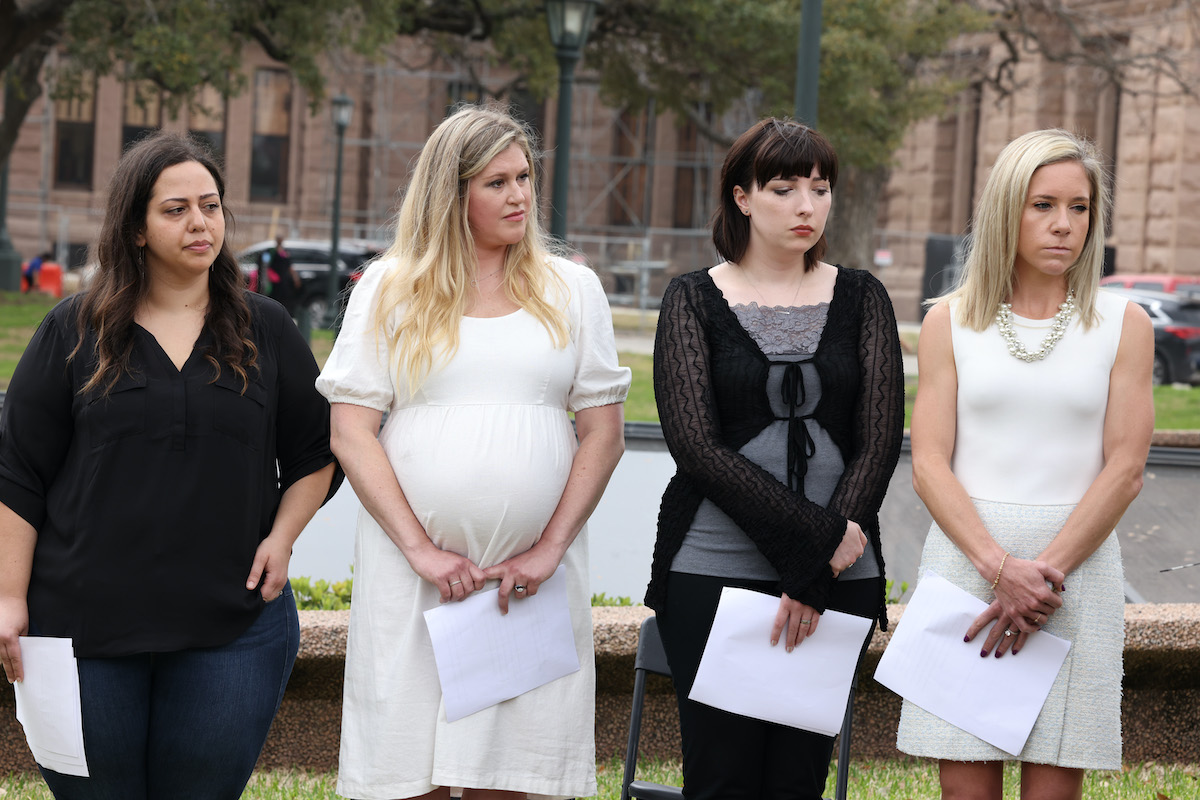Survivors of Texas Abortion Ban Forced in Court To Relive Trauma to the Point of Tears and Vomiting

The recent abortion ban in Texas (in the wake of federally-protected abortion rights being thrown out by the Supreme Court) has put millions of people in danger of complications related to high-risk pregnancies they can’t terminate. 13 women have challenged the state of Texas in a lawsuit seeking to clarify the details of their right to medically-necessary abortions.
The 13 survivors of the abortion ban in Texas who brought suit against the state were forced to give extremely personal testimony of their experiences being unable to receive emergency abortions, the trauma of which had a lasting effect on the women and their families.
During the testimony of Samantha Casiano, the survivor of a high-risk pregnancy, she described suffering a physiological response when asked to testify about the details of losing her baby. When Samantha’s attorney asked her to describe her feelings upon learning that her pregnancy was certain to end in tragedy, the emotion was too much and Casiano threw up on the witness stand.
She tearfully explained that she was forced to carry her baby girl to term, despite physicians knowing that she would see only a few hours of life upon leaving the womb. Samantha told the court how her baby’s tiny body slowly turned cold over four devastating hours. “I was so sorry that I couldn’t help her or release her going to heaven sooner rather than later, I felt so bad,” she said, per the Center for Reproductive Rights. “She had no mercy … and I couldn’t do anything.”
The ongoing case demands answers—specifically, when, exactly, are abortions permissible under Texas law to save the life of the mother? The suit marks the first of its kind in the wake of Roe v. Wade being overturned in 2022. While Texas has banned abortion, there are some gray areas as to when the procedure is permitted as a life-saving measure. Unfortunately, those seeking these necessary procedures are often met with vague answers and/or strict criteria to qualify for an exception to the ban, making it almost impossible to get needed medical care.
Assistant Attorney General Amy Pletscher argued in court that the plaintiffs’ anger and blame are “misplaced,” claiming their trauma was not the fault of Texas, but rather “a direct result of their own medical providers failing them.” Except medical providers have repeatedly said the states’ vague, draconian laws make it impossible for them to do their jobs.
Lead plaintiff in the case—and the woman lending her name to the lawsuit of Zurawski v. State of Texas—is Amanda Zurawski, who underwent the heartbreak of losing her baby after years of failed attempts at starting a family. 18 weeks along, she learned that her cervix had dilated and she could not deliver a healthy baby. Despite this knowledge, doctors were unable to perform an abortion; Amanda had no choice but to wait until her baby’s heart stopped beating, at which point she could be removed from the womb. “I had to listen to her heartbeat, simultaneously wanting to hear it and not wanting to hear it at the same time,” a sobbing Amanda told the court. Being forced to relive the details of these events on the stand was, understandably, completely overwhelming.
It’s a commonly held (and false) notion among right-wing lawmakers and voters that individuals who have abortions do so with a certain cavalier intrepidness, as if they take pride and pleasure in the termination of a pregnancy, even in the thankfully relatively rare instances when the process is physically painful or emotionally fraught. This mischaracterization seems to be how conservatives grant themselves permission to shame people who receive abortions, even when they are the last resort to save the life of the pregnant person. (Of course, no abortion is deserving of shaming, no matter how elective anti-abortion forces see it to be.)
In the case of Zurawski v. State of Texas, 13 brave survivors of the Texas abortion ban have dared to ask why their state has abandoned them, and demand answers as to the fate of women from the end of Roe onward.
(via Vice, featured image: Rick Kern/Getty Images for the Center for Reproductive Rights)
Have a tip we should know? tips@themarysue.com